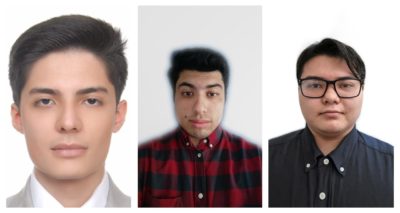Editor’s note: This is one in a series of Meet the Omnivore posts, featuring individual creators and developers who use the NVIDIA Omniverse 3D simulation and collaboration platform to boost their artistic or engineering processes.
Students majoring in game development engineering at the Universidad de Artes Digitales (UAD) in Guadalajara, Mexico don’t just learn about what goes into video game engines, they create them from scratch.
In the class “Tools for Game Development,” taught by Marco Millán, the final assignment requires creating an NVIDIA Omniverse Connector — a plugin with a simple toolkit for users to sync data between different applications — for the real-time virtual collaboration and simulation platform.
“Creating an NVIDIA Omniverse Connector was added to our curriculum to give the students more tools that add value to their projects,” said Sam Prince, head of the academic board for game development engineering at UAD. “Students graduate from our program with the ability to create custom game engines, and using a connector allows these engines to communicate with other scene composition applications like Omniverse Create.”
Once their connectors are integrated with Omniverse, students can use them to collaborate on video game scenes, sharing changes and making improvements in real time.
Cracking the Code to Collaborate

Making their connector was challenging but rewarding, according to Miguel Cerda, Roberto Charreton and Sergio Diaz — three recent UAD graduates who accomplished the task.
After reading the example NVIDIA Connector documentation, they used their C++ programming language skills to compile libraries and run tests on their code. Once the connectors were up and running, the students spent about a day integrating their game engines with Omniverse.
Over the next couple months, they added custom tools to their engines, loaded and saved their video game scenes onto the NVIDIA Omniverse platform and collaborated on them in real time.
“The live synchronization feature on Omniverse is magical,” said Cerda. “It has a lot of potential to connect both people and tools for many kinds of programs, which will greatly increase productivity.”
For Charreton, the assignment spurred a desire to further develop his work with Omniverse. He completed an Omniverse-based 3D game engine for his thesis project. And he’s developing a 2D engine to use for educational purposes in the game development classes he’s teaching.
Diaz, who called Omniverse an “excellent tool for group work,” said this connector project taught him how to create computer science tools and methods that he can apply to any application in the future, not just game engines.
In addition to game design and development, UAD — founded a decade ago — houses digital arts departments such as animation, app development and audiovisual production.
Watch the UAD students’ community spotlight livestream to learn more about their workflow:
Ready to Create With RTX
NVIDIA Omniverse relies on NVIDIA RTX technology to speed up production for creators like those from UAD. NVIDIA RTX enables 3D designs, photorealistic simulations and stunning visual effects — faster than ever.
Charreton’s favorite part of his final project, in fact, was working with RTX technology.
“I love everything related to rendering,” he said. “It’s very impressive to see how easily you can develop something from scratch and get a great demo using NVIDIA RTX in real time.”
Diaz recalls getting his first NVIDIA RTX card in his first year at UAD. “Before that, I could only play a few games and mostly programmed in HTML or Windows formats,” he said. “With NVIDIA RTX GPUs, I can create better graphics very fast.”
UAD representatives will speak at the Omniverse User Group session at GTC. Watch NVIDIA founder and CEO Jensen Huang’s GTC keynote address streaming on Nov. 9 and in replay. Check out the Omniverse Developer Day sessions on Nov. 10.